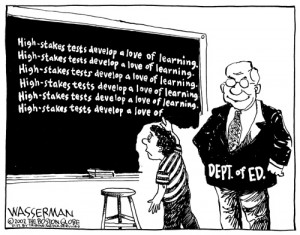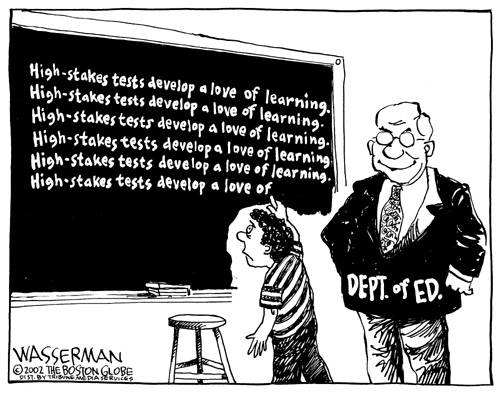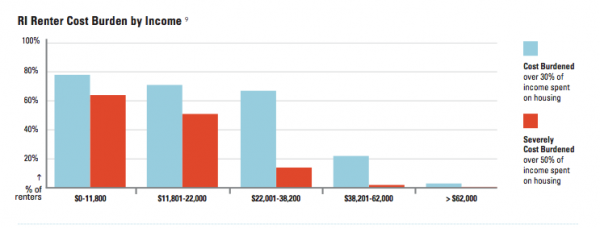 Where can I find the Category One Memorial Designation Commission? As far as I can tell, it does not exist, despite legislation passed last year mandating the creation of such an authority.
Where can I find the Category One Memorial Designation Commission? As far as I can tell, it does not exist, despite legislation passed last year mandating the creation of such an authority.
After the Freedom from Religion Foundation challenged the constitutionality of a large Christian cross on public land in Woonsocket, the General Assembly hastily passed, at 2:59am on the last day of the session, an odd and mostly useless bill, H8143A. The bill was originally written with the intent of getting around the First Amendment, specifically the part that says, “Congress shall make no law respecting an establishment of religion, or prohibiting the free exercise thereof;” which the Supreme Court has routinely held applies to the erection of permanent religious monuments on public land.
This bill established the “Category One Memorial Designation Commission,” a body of five nominees who will “hear and make determinations on requests by members of the general public to designate items within the state as category one memorial items.” Category one memorial items are those that have “attained a secular traditional, cultural or community recognition or value,” are located on government owned land, and were in existence prior to January 1, 2012. The hammer drops with this line: “The potential identification of an item or the item having recognizable identification with a known or established religion shall not exclude the item” from being so designated.
Once an item or memorial has achieved “Category One” status, what then? “Upon deliberation, the commission may communicate their majority decision to designate an item as such in written form to the city or town clerk of the municipality wherein the item is located, for recording in the land deeds, and to the chief executive of the municipality.”
That’s it.
Wait.
That’s it?
The original version of the bill, H8143, the one that did not pass, took a much harder stance, and contained the line that, “The state of Rhode Island declares that a category one memorial item shall not be deemed or viewed as the making of a law regarding the establishment of a state religion” and “It shall be the policy of the state to defend against any non-governmental challenge to the placement or continued existence of any category one memorial item on any state or municipal property.” The bill would have established a $1 million fund for the Attorney General to use in defending such items from lawsuits.
Of course this version of the bill, had it passed, would have never survived court scrutiny. The legislature can’t pass a law that violates the Constitution by inserting a clause that says such violations don’t count, so the watered down version was passed instead.
I recently got to wondering what the status of the “Category One Memorial Designation Commission” is right now. According to the legislation, the permanent commission is to be made up of five members, three to be appointed by the Speaker of the House and two by the Senate President. In February 2013, an odd numbered year, the Commission was to “elect from among themselves a chairperson.”
None of this has happened.
According to the Woonsocket Call, as of March 5, 2013 Representative McLaughlin, who authored the legislation, said “he is working with legislative leaders to make the first appointments to the commission.” This delay means that the Commission won’t be able to be established or begin its work until February 2015, since the legislation specifically says, “The members of the commission shall, in February of each odd-numbered year, elect from among themselves a chairperson.”
In the meantime, how is the important work of declaring certain memorials “Category One Items” to get done?
Representative McLaughlin seems to have confused the original, unconstitutional legislation with the declawed and useless legislation that passed, saying, “the law is in place to protect the monuments and others like it.”
Even the Woonsocket Call, which is sympathetic to the Woonsocket Cross, could not help but point out that “As written, the law seems only to define a category one memorial item and create a commission to so designate such structures, but it doesn’t specify any protections from legal challenges.”
I’ve written emails to Speaker Fox, Senate President Paiva Weed, the chairperson of the Rhode Island Historical Society and the the Adjutant General of the National Guard, all of whom are supposed to be involved with the commission member selection process, and to Representatives McLaughlin, Hull, Dickinson and MacBeth who wrote and introduced the bill, asking about the status of the commission.
But so far I have received no response.
 More than two dozen community organizations, including the ACLU of Rhode Island, have this week formally asked the Rhode Island Board of Education to rescind the regulation that conditions the receipt of a high school diploma on passing a “high stakes test.” Although the groups have diverse reasons for opposing the measure, they all agree that the mandate is poor policy and will likely have devastating effects for thousands of students who deserve a diploma.
More than two dozen community organizations, including the ACLU of Rhode Island, have this week formally asked the Rhode Island Board of Education to rescind the regulation that conditions the receipt of a high school diploma on passing a “high stakes test.” Although the groups have diverse reasons for opposing the measure, they all agree that the mandate is poor policy and will likely have devastating effects for thousands of students who deserve a diploma.




 Where can I find the Category One Memorial Designation Commission? As far as I can tell, it does not exist, despite legislation passed last year mandating the creation of such an authority.
Where can I find the Category One Memorial Designation Commission? As far as I can tell, it does not exist, despite legislation passed last year mandating the creation of such an authority.
